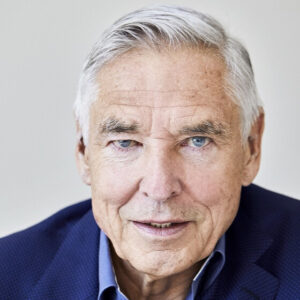The Water Supply Coup: Unveiling the New Leadership at the WEF

In a surprising move that signals a shift in global economic priorities, the World Economic Forum (WEF) has appointed Peter Brabeck-Letmathe as its new CEO, taking over from Klaus Schwab. With extensive experience in the food and beverage industry, particularly with Nestlé, Brabeck-Letmathe’s appointment raises eyebrows for many reasons. It paints the picture of a significant coup at the WEF—one that is likely to influence global policies surrounding one of our most critical resources: water.
Brabeck-Letmathe: A Career Merging Business and Global Challenges
Brabeck-Letmathe’s illustrious career began in 1968 with Nestlé, where he progressively ascended the ranks and held the position of CEO from 1997 to 2008. Afterward, he didn’t step away—he continued to shape global food and water policy, serving on boards for various multinational corporations like Credit Suisse and Exxon Mobil. Perhaps most tellingly, he founded the 2030 Water Resources Group (2030 WRG), a public-private partnership aimed at addressing water scarcity issues at a time when demand is projected to exceed supply globally.
The 2030 WRG epitomizes the intersection of corporate interests and public welfare. Launched at Davos in 2008, this initiative brings together governments, the private sector, and civil society in an effort to tackle the escalating water crisis. Given Nestlé’s vested interest, it’s clear that Brabeck-Letmathe’s vision extends beyond mere corporate profits. His intentions for the water supply will be pivotal in shaping future global economic policies.
The Privatization of Water: A Controversial Proposition
In a controversial statement made in a 2005 documentary titled "We Feed the World," Brabeck-Letmathe argued against declaring water a public right. He contended that while everyone deserves access to water, it should be limited to essential needs, estimated at 50-100 liters per person per day.
This perspective opens a Pandora’s box of ethical concerns, particularly considering Nestlé’s business model. The company has aggressively acquired water extraction rights and bottled water from public lands, thereby commodifying a resource that many believe should remain accessible to all. With reports of communities suffering from water shortages due to corporate over-extraction, the implications of this privatization strategy cannot be overstated.
Control through Water: A New Economic Paradigm?
The notion that control over water equates to control over the population is one that resonates deeply in today’s socio-economic climate. The WEF’s increasing advocacy for centralized regulations, purportedly to combat climate issues, raises critical questions about who determines what constitutes essential versus non-essential water use. With Brabeck-Letmathe at the helm, it’s anticipated that these regulations will become even more stringent, emphasizing economic valuation over humanitarian needs.
Brabeck-Letmathe believes that 98.5% of freshwater usage for agriculture should be categorized as an economic good. This perspective prioritizes profit over access, allowing a few to dictate how this vital resource is utilized—and by whom.
The Agenda 2030 Continuation: What Lies Ahead?
During discussions about his new role, Brabeck-Letmathe indicated that our impending water crisis may outweigh climate concerns. He suggested that governments first need to recognize this crisis to partner effectively with the private sector—a strategy that can lead to profound control over both water and food supplies.
The departure of Klaus Schwab marks not the end of the WEF’s ambitious Agenda 2030 but rather a transition in leadership that could intensify the push for privatization and management of essential resources. As the new CEO, Brabeck-Letmathe is positioned to advocate for policies that may impact every individual’s fundamental rights.
Staying Informed: The Role of Extreme Investor Network
At Extreme Investor Network, we are committed to providing you with in-depth analysis and awareness of the evolving economic landscape shaped by figures like Brabeck-Letmathe. As we continue to analyze this critical transition within the WEF, we encourage you to stay tuned for our upcoming discussions that aim to shed light on these significant developments and their implications for global economics and individual freedoms.
The battle for water is just beginning, and understanding these radical changes will empower you to navigate the emerging economic reality effectively.

